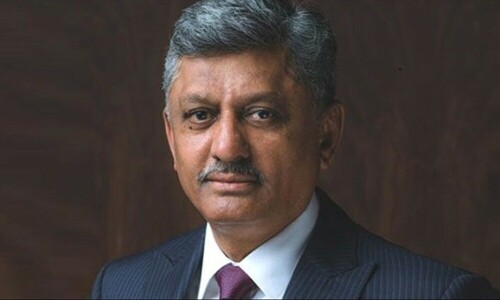Budget Fails to Address Key Economic Challenges, Says PRAC
The recently announced budget has not adequately tackled pressing issues, especially within the manufacturing sector, potentially leading to increased joblessness and destabilizing Pakistan’s already unsteady financial condition, according to the Policy Research and Advisory Council (PRAC).
In a statement released on Tuesday, PRAC Chairman Mohammad Younus Dagha acknowledged the budget’s innovative measures, such as the Green Sukuk, which he noted indicates a favorable move towards ecological balance and demonstrates the government’s dedication to ecological matters.
He commended the 1.5% reduction in withholding taxes on property dealings across all tax categories, along with the elimination of the 7% Federal Excise Duty on property transfers, anticipating that this will invigorate the real estate and construction industries.
Dagha also welcomed the tax breaks provided to salaried individuals.
However, he noted that the absence of a higher minimum tax threshold might not sufficiently lighten the load on the most susceptible and heavily taxed demographics.
Furthermore, he suggested that the budget depends on unrealistic revenue goals and expansion predictions, deeming it “out of sync with economic realities.”
He stressed that these ambitious projections disregard current macroeconomic limitations, potentially resulting in “unattainable expectations and worsening the country’s financial difficulties.”
He further cautioned that the budget also raised worries regarding the nation’s monetary well-being, particularly concerning debt management, which is anticipated to consume 50.4% of the existing expenditure and 74.1% of net federal incomes in FY26.
“This significantly curtails the resources accessible for developmental expenditure,” the statement read.
It also highlighted that the 29% decrease in the Federal Public Sector Development Program, from PKR 1,400 billion to PKR 1,000 billion for the coming fiscal year, “will weaken essential projects, impede job development, and obstruct long-term economic advancement.”
“By reducing development spending, the government is risking long-term economic advancement and stability,” Dagha stated.
“The reduction in PSDP funding directly clashes with the need for investment in infrastructure, education, and healthcare.”
PRAC voiced worries regarding the lack of specific backing for the industrial sector, which they stated has undergone a 1.5% downturn during the initial nine months of FY2025.
Moreover, despite the growing trade imbalance in services, the budget has failed to reveal specific incentives for Pakistan’s prospering IT sector, neglecting a chance to capitalize on its capacity for economic growth.
Likewise, no export-focused growth strategies were presented, “a crucial oversight in enhancing foreign exchange revenues and reinforcing the country’s economic steadiness.”
Meanwhile, Dagha emphasized the inadequate funding for Karachi, which now ranks as the fifth least livable city across the globe.
“With merely PKR 3.2 billion assigned to the K-IV water supply project, a vital effort to tackle the city’s continuous water shortage, the budget allocation is considered insufficient,” the statement clarified, adding that numerous significant projects under the Karachi Transformation Plan, revealed in 2020, remain primarily unresolved.
“This presented a rare chance to execute transformative overhauls in vital domains such as education, healthcare, and infrastructure,” Dagha stated. “Regrettably, the budget largely overlooked the opportunity to enact substantial changes in these crucial sectors.”
PRAC has urged the government to re-evaluate the budget and institute procedures that can proficiently tackle the economic ground realities of Pakistan.
“There is an immediate necessity for a more well-adjusted strategy that concentrates on sustainable expansion, monetary accountability, and customized support for key sectors such as industry, technology, and social welfare,” it concluded.



Comments (0)
No comments yet. Be the first to comment!
Leave a Comment